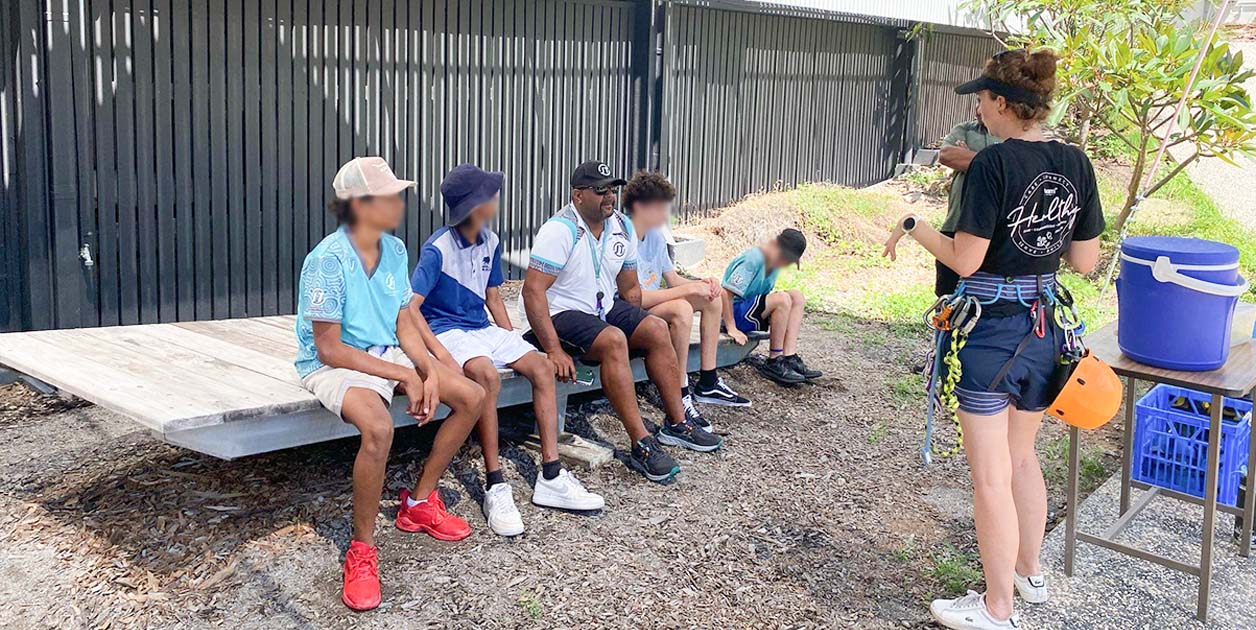
How to Inspire Confidence in Youth
Confidence is a crucial factor in a young person’s personal and professional development. It forms
the foundation upon which they build self-esteem, resilience, and the ability to embrace challenges.
Instilling confidence in youth goes beyond motivation—it’s about equipping them with the right
tools, mindset, and support systems. This article explores key strategies to inspire confidence in
young people and empower them to reach their full potential.
1. Encourage a Growth Mindset
A growth mindset is the belief that abilities and intelligence can be developed through dedication
and effort. Young individuals with a growth mindset are more likely to embrace challenges, learn
from feedback, and persevere in the face of setbacks.
- Praise Effort Over Results: Focus on the process rather than the outcome. Commend
persistence, hard work, and improvement. - Normalise Mistakes:Encourage the understanding that mistakes are a natural and
necessary part of learning. - Set Achievable Goals: Help youth break down larger aspirations into smaller, manageable
steps that build confidence with each success.
2. Provide Positive Role Models
Role models significantly influence how young people perceive themselves and their potential.
Whether it’s parents, teachers, mentors, or community leaders, positive influences can ignite self-
belief.
- Expose Them to Inspirational Figures: Share real stories of people who have overcome
adversity and achieved their goals. - Lead by Example:Model confident behaviour in your actions and choices. Show how to
handle failure with grace and resilience. - Connect Them with Mentors:Mentors offer guidance, support, and affirmation, helping
youth believe in their abilities.
3. Foster Strong Communication Skills
Effective communication boosts self-confidence. When youth learn to express themselves clearly
and respectfully, they feel more empowered in social and professional settings.
- Encourage Public Speaking: Provide opportunities to speak in front of others to develop
clarity and self-assurance. - Teach Active Listening:Confidence also comes from being a thoughtful listener. Promote
two-way conversations and empathy. - Use Positive Reinforcement:Offer constructive feedback that highlights strengths while
guiding areas of growth.
4. Support Their Interests and Talents
Confidence flourishes when young people engage in activities they are passionate about. Supporting
their interests helps nurture a sense of competence and identity.
- Provide Opportunities for Exploration:Encourage participation in diverse fields—sports,
arts, music, STEM, or leadership. - Celebrate Their Strengths:Acknowledge what they do well and help them cultivate those
talents further. - Promote Extracurricular Involvement:Being part of a team or club enhances belonging and
self-worth.
5. Promote Emotional Resilience
True confidence comes from emotional strength. Teaching resilience enables youth to manage
stress, setbacks, and pressure in a healthy and constructive way.
- Teach Emotional Regulation:Introduce mindfulness practices like deep breathing,
journalling, or meditation. - Develop Problem-Solving Skills:Encourage critical thinking and solution-focused approaches
to challenges. - Encourage Self-Compassion:Help them practise kindness towards themselves and let go of
perfectionism.
6. Cultivate a Supportive Environment
A young person’s confidence is often shaped by the environment around them. Positive
reinforcement, encouragement, and inclusivity can make a profound difference.
- Create a Safe Space for Expression:Ensure they can voice thoughts and feelings without
judgement. - Encourage Teamwork and Collaboration:Group activities help develop social skills and a
sense of contribution. - Surround Them with Positive Influences:Encouraging and uplifting people foster belief and
motivation.
7. Teach Self-Reliance and Responsibility
Confidence grows when young people trust their ability to handle responsibilities and make
decisions.
- Assign Responsibilities:Give them age-appropriate tasks that encourage ownership and
independence. - Encourage Decision-Making:Let them make choices, even if they face consequences. Guide,
don’t control. - Empower Initiative:Inspire them to take the lead in projects or volunteer for causes they
care about.
8. Address Negative Self-Talk
Negative inner dialogue can erode self-confidence. Teaching young people to recognise and shift
these patterns is essential.
- Identify Limiting Beliefs:Help them notice thoughts like “I’m not good enough” or “I can’t
do this.” - Encourage Positive Affirmations:Practising phrases like “I am capable” or “I can learn and
grow” reinforces self-worth. - Challenge Unrealistic Expectations:Remind them that growth is ongoing and that mistakes
are part of progress.
9. Encourage Healthy Risk-Taking
Taking risks helps youth expand their comfort zones and builds trust in their own abilities.
- Support Trying New Things:Encourage participation in new activities, challenges, or
leadership opportunities. - Reframe Failure as Growth:Help them see setbacks as valuable learning experiences.
- Celebrate Effort and Courage:Acknowledge bravery and initiative regardless of the
outcome.
10. Instil a Sense of Purpose
Confidence deepens when young people feel they are contributing to something meaningful.
- Encourage Community Involvement:Volunteering and giving back foster purpose and
connection. - Help Identify Passions:Support exploration of interests that bring joy and fulfilment.
- Show the Impact of Their Actions:Whether it’s helping someone or reaching a goal, help
them see how their efforts matter.
Final Thoughts
Confidence is a gift that keeps on giving. When young people believe in themselves, they are more
likely to embrace opportunities, face challenges head-on, and grow into resilient, capable adults. Whether you’re a parent, educator, mentor, or community leader, your support and guidance play a vital role in nurturing their confidence. By fostering a growth mindset, promoting emotional resilience, supporting talents, and cultivating safe, empowering environments, we can inspire a
generation of young Australians to shine with self-assurance, strength, and purpose.



